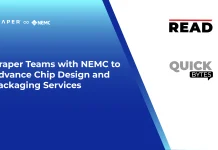Vector Space Biosciences announced it is developing large language modeling (LLMs) and visualization applications in collaboration with the Oracle Cloud Infrastructure (OCI) team, to aid in the advancement of space biosciences. These Artificial Intelligence (AI) models will support the research and development of countermeasures against diseases associated with stressors connected to protecting and repairing the human body during spaceflight. By leveraging OCI’s AI-accelerated GPU clusters, optimized for deep learning and scientific computing, Vector Space Biosciences intends to innovate faster – accelerating the development of new applications, including new multi-omic innovations in drug repurposing, drug design, materials design and precision medicine.
For humans to establish a lunar base or go to Mars, understanding how to protect and repair the human body during spaceflight is necessary. Spaceflight includes a variety of stressors to the human body including microgravity and radiation in the form of Galactic Cosmic Rays (GCRs) and HZE particles, the high-energy nuclei component of GCRs. These stressors result in damage to the human body.
Vector Space Biosciences, along with its technical and scientific collaborators including Oracle, Imperial College of London (ICL), University College London (UCL), Cal Poly Pomona, University of California San Diego (UCSD), IFO Rome, McGill University and others, will leverage advanced language modeling techniques – including context-dependent hidden relationship detection between proteins, pathways, drug compounds and molecular sequences – to enable new hypotheses, insights, interpretations and discoveries.
Language models represent the leading edge in AI (Artificial Intelligence) and ML (Machine Learning) today. In collaboration with Oracle, Vector Space Biosciences can co-develop more complex, high-performance applications, including:
- The Correlation Matrix Dataset Builder (CMDB) API: A REST-based API enabling new ways of clustering context-dependent known and hidden relationships [1, 2] between proteins, pathways, drug compounds and molecular sequences in real-time based on the latest advancements in language modeling.
- The Protein-Protein Interaction Network (PPIN) API: A REST-based API which can be used to generate a multi-level graph network from a correlation matrix dataset. The graph network represents context-dependent known and hidden relationships between proteins, pathways, drug compounds and molecular sequences.
SOURCE: Businesswire




